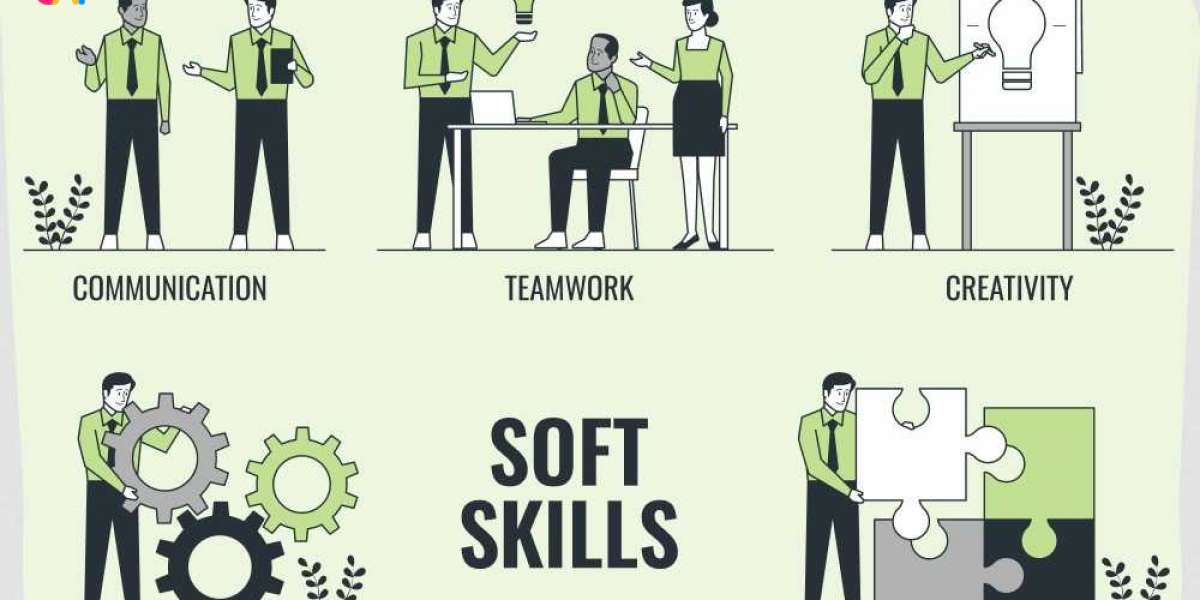In today’s world, the ability to interact with colleagues, adapt to changes, and solve problems are essential for career success. For employees with intellectual disabilities, however, developing these "soft skills" can be especially challenging. With the right support and resources, such as specialized services for intellectual disabilities, these skills can not only be learned but can also significantly enhance the quality of life for these employees. In this article, we will examine how soft skills development can benefit employees with intellectual disabilities and the positive impact it has on both the individual and the organization.
What Are Soft Skills and Why Are They Important for Employees with Intellectual Disabilities?
Soft skills refer to a collection of abilities that enable individuals to collaborate efficiently, manage their time, make informed decisions, and address challenges. These include communication, empathy, problem-solving, and flexibility. For employees with intellectual disabilities, honing these skills is crucial, as they support smoother integration into the workplace, help break down obstacles, and foster a greater sense of self-assurance.
By focusing on the development of soft skills, employees with intellectual disabilities can enhance their job performance, become more self-reliant, and feel more confident in their careers. Mastering these abilities allows them to tap into their full potential and pursue meaningful, fulfilling roles in a variety of industries.
Communication and Interacting with Colleagues
Effective communication is a key soft skill that plays a vital role in the workplace. For employees with intellectual disabilities, it can be a particular challenge, especially if they find it difficult to express their ideas or interpret non-verbal signals. However, with the right training and support, these communication skills can be significantly improved.
It’s essential to establish a supportive work environment where employees feel comfortable and confident, without the fear of making mistakes. Providing training on essential communication techniques, such as active listening, asking clarifying questions, and offering constructive feedback, can help foster better interactions. Additionally, mentorship opportunities and ongoing communication workshops in the workplace provide valuable practice and a space for employees to build and refine these crucial skills.
Teamwork and Conflict Resolution
Teamwork is another essential soft skill that is crucial for success in any workplace. For employees with intellectual disabilities, developing the ability to collaborate with others is a significant step towards both professional and social integration.
These employees often struggle with understanding their role in a team and forming positive relationships with their coworkers. However, through structured training, they can learn how to work together, contribute ideas, and participate in team projects. Teaching conflict resolution and the importance of compromise is equally vital, as it can enhance team dynamics and overall productivity.
Workshops and training focused on team collaboration and conflict management offer valuable opportunities for employees to engage in real-life scenarios, learn effective strategies for resolving disagreements, and strengthen their teamwork skills.
Self-Organization and Time Management
Self-organization and time management are valuable skills for anyone in the workplace. For employees with intellectual disabilities, tasks related to organizing their work and managing time can be challenging. However, with training and structured programs, they can learn how to plan their activities, set priorities, and meet deadlines.
Implementing planning systems and tools, such as schedules, task lists, and reminders, can significantly increase productivity. It is important that colleagues and supervisors support employees in this process by helping them set realistic goals and track their progress.
Emotional Resilience and Stress Management
For employees with intellectual disabilities, emotional resilience and the ability to manage stress are vital for professional success. Workplace stress can stem from various factors, such as high demands, unclear tasks, or even conflicts with colleagues. Therefore, teaching stress management, emotional regulation, and how to stay calm in challenging situations is an essential part of soft skills development.
Mindfulness practices, breathing exercises, and regular sessions with psychologists or trainers focused on emotional resilience can help employees not only cope with stressful situations but also boost their self-confidence and motivation.
Practical Examples and Success Stories
More and more companies are implementing programs specifically aimed at developing soft skills in employees with intellectual disabilities. Mentorship programs, communication and self-management training, and stress management workshops have proven to be extremely effective. Companies that actively work with these employees report higher job satisfaction, improved performance, and lower turnover rates.
As a result of these efforts, employees not only become more confident and productive but also play an active role in creating a positive corporate culture.
Conclusion: The Path to Success Through Soft Skills Development
Developing soft skills in employees with intellectual disabilities is not just about enhancing their professional skills, but also a key element in their social integration. Communication, teamwork, self-management, and emotional regulation skills help create an inclusive work environment where everyone can reach their potential. With the right programs and support from employers, employees with intellectual disabilities can achieve greater success and become full members of work teams, benefiting both themselves and the organization as a whole.




